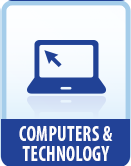|
This section contains 1,069 words (approx. 4 pages at 300 words per page) |

|
Some believe that universal access to personal computers connected to the World Wide Web must lead inevitably to universal democracy. Total interconnectedness will, they hope, create a world without borders, a place where anybody can know anything or speak to anybody else at the touch of a key. "Cyberspace," one sociology textbook proclaims, is "the most liberated of all spaces harboring human activity and interaction."
Critics say that the total interconnectedness of the Web is dangerous. The same power of information-gathering that it puts into private hands, they argue, it also puts into corporate and government hands--but governments have police and armies, not just e-mail.
This controversy pits connection against surveillance. Connection makes it possible for scattered individuals to exchange knowledge; to encourage each other in a shared view of the world; to coordinate protests, boycotts, or other actions; and to pressure politicians via...
|
This section contains 1,069 words (approx. 4 pages at 300 words per page) |

|


